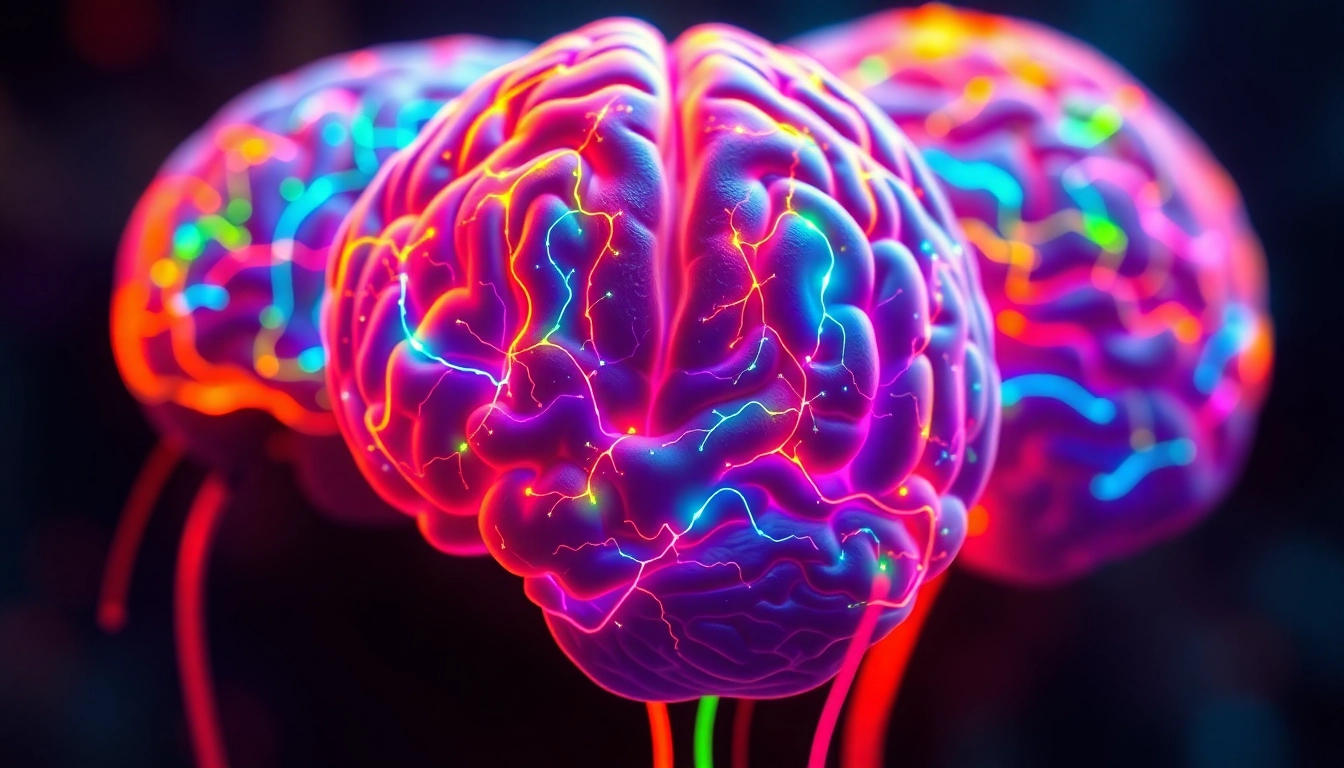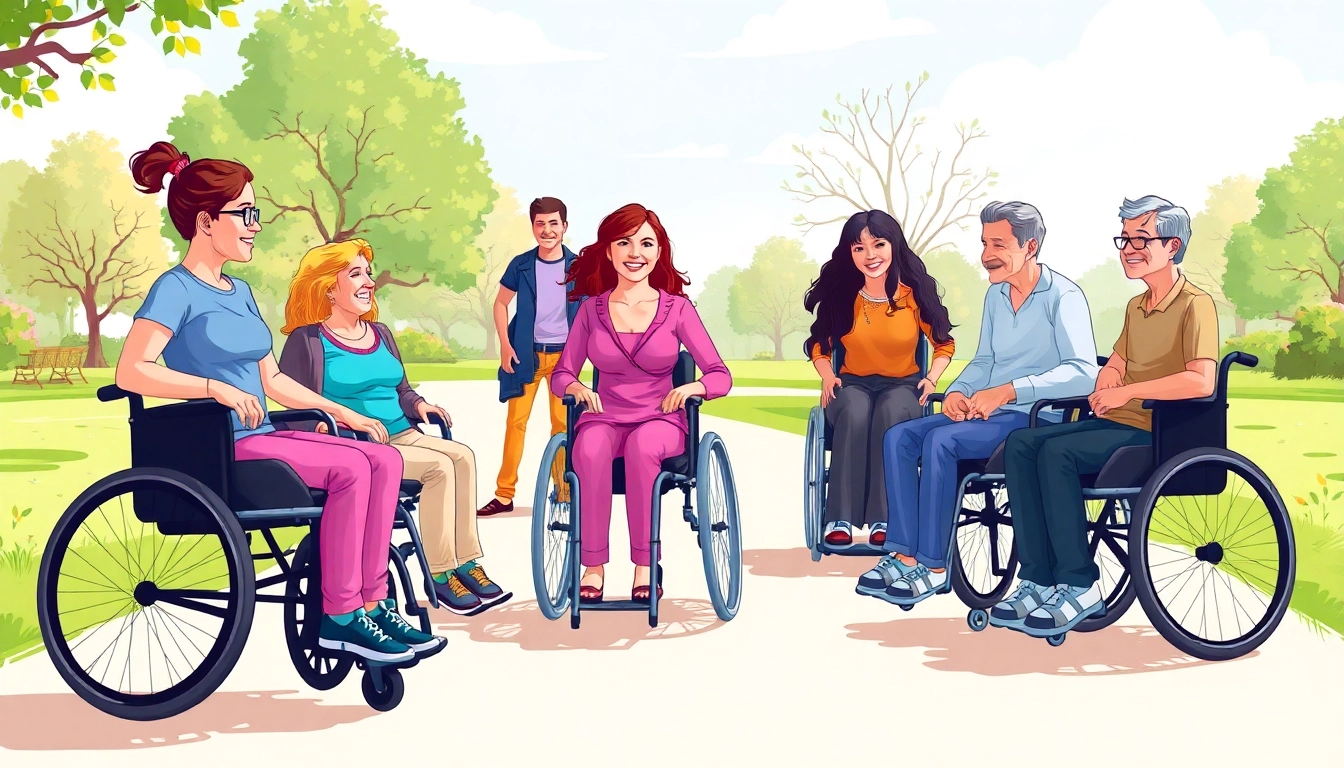Understanding Depression: Definitions and Symptoms
What is Depression?
Depression, clinically known as major depressive disorder (MDD), is a serious mood disorder that negatively affects how you feel, think, and handle daily activities. According to the World Health Organization, it is characterized by persistent sadness and a lack of interest or pleasure in previously rewarding or enjoyable activities. Individuals suffering from depression may experience a range of symptoms that can impact their physical health, mental well-being, and overall life satisfaction.
Common Symptoms of Depression
Recognizing the symptoms of depression is critical for early intervention. Common symptoms include:
- Persistent feelings of sadness or low mood
- Loss of interest or pleasure in activities
- Changes in appetite or weight (increased or decreased)
- Sleep disturbances (insomnia or sleeping too much)
- Fatigue or decreased energy
- Feelings of worthlessness or guilt
- Difficulty concentrating or making decisions
- Thoughts of death or suicide
These symptoms can vary in severity and duration, making it essential for individuals to seek help when they notice these changes in their emotional and physical health.
Types of Depression: An Overview
Depression is not a one-size-fits-all condition; it manifests in various forms. Here are some principal types:
- Major Depressive Disorder (MDD): Characterized by intense symptoms that hinder daily functioning.
- Persistent Depressive Disorder (Dysthymia): A chronic form of depression lasting for at least two years, with less severe symptoms than MDD.
- Seasonal Affective Disorder (SAD): Depression that occurs at specific times of the year, often in winter when sunlight exposure is limited.
- Postpartum Depression: A complex mix of physical, emotional, and behavioral changes that occur after giving birth.
- Bipolar Disorder: Besides depressive episodes, individuals experience manic or hypomanic episodes.
Understanding these various types of depression is crucial for effective treatment and management.
The Impact of Depression on Daily Life
How Depression Affects Relationships
Depression can deeply affect relationships, creating barriers that hinder communication and emotional connection. Individuals suffering from depression may withdraw from friends and family, leading to feelings of isolation both for themselves and their loved ones. Additionally, feelings of anger, irritability, and anxiety may arise, further complicating interpersonal dynamics. Such conflicts can result in misunderstandings and unmet emotional needs. For spouses and partners, it can lead to frustration and confusion as they might not fully understand why their partner is behaving differently.
Work and Productivity Challenges
In the workplace, depression can manifest as a diminished sense of accomplishment, fatigue, and difficulty concentrating. Many individuals might find it challenging to meet deadlines or engage in collaborative efforts, ultimately affecting overall productivity. The stigma surrounding mental health can also make it difficult for affected individuals to share their struggles openly, leading to a lack of support from colleagues and management. Companies that support mental health initiatives can help mitigate these challenges by fostering an environment where employees feel encouraged to share their experiences and seek help.
Physical Health and Depression
The relationship between depression and physical health is quite complex. Depression has been linked to various physical ailments, including heart disease, diabetes, and chronic pain. The stress and inactivity associated with depression can exacerbate these conditions, leading to a vicious cycle where physical and mental health deteriorate simultaneously. Furthermore, depressed individuals may find it challenging to maintain healthy lifestyles due to lack of motivation, making regular exercise, proper nutrition, and sleep difficult to prioritize.
Effective Coping Strategies for Dealing with Depression
Self-Help Techniques
While professional help is essential for managing depression, several self-help techniques can also prove beneficial. Engaging in regular physical activity can significantly impact mood and overall health. Activities such as jogging, yoga, or even brisk walking can release endorphins and trigger a positive emotional response.
Meditation and mindfulness practices can assist in re-centering thoughts and alleviating negative perspectives. Additionally, journaling can serve as a therapeutic outlet, enabling individuals to express their feelings and reflect on their experiences.
Establishing a daily routine can also create a sense of structure and normalcy, fostering a feeling of accomplishment and stability as one navigates daily challenges.
Importance of Seeking Professional Help
Recognizing when to seek professional help is crucial in managing depression effectively. Mental health professionals, such as psychologists and psychiatrists, can offer tailored strategies to help individuals cope with their symptoms. Treatment methods can vary significantly, and what works for one person may not be effective for another.
Therapy options range from cognitive-behavioral therapy (CBT) to dialectical behavior therapy (DBT), each providing unique tools for tackling negative thought patterns and enhancing emotional regulation. Professionals may also prescribe medications to help balance brain chemistry and improve overall mood.
Utilizing Support Networks
Creating a robust support network can be invaluable in the struggle against depression. Friends and family provide emotional backing, but support groups can also be beneficial. Local community centers, hospitals, and online forums often host meetings where individuals can share their experiences with depression in a safe and accepting environment.
Pursuing connections with others who understand what one is going through can significantly reduce feelings of isolation and validate personal experiences. It reassures individuals that they are not alone in their struggles.
Therapies and Treatments Available
Psychotherapy Options for Depression
Psychotherapy, or talk therapy, is a critical component in treating depression. Various approaches exist, including:
- Cognitive Behavioral Therapy (CBT): Focuses on identifying and rectifying harmful thought patterns.
- Interpersonal Therapy (IPT): Works on improving personal relationships and navigating interpersonal issues that contribute to depression.
- Behavioral Activation: Encourages engagement in enjoyable or meaningful activities to break the cycle of depression.
- Dialectical Behavior Therapy (DBT): Combines cognitive-behavioral techniques with mindfulness practices to enhance emotional regulation.
Finding the right therapist with experience in dealing with depression can make a significant difference in treatment success.
Medications: When and Why?
Antidepressant medications are often prescribed to individuals diagnosed with depression. These medications work by balancing chemicals in the brain that affect mood and emotions. Common types of antidepressants include:
- Selective serotonin reuptake inhibitors (SSRIs): Common first-line treatment options.
- Serotonin and norepinephrine reuptake inhibitors (SNRIs): Help increase the levels of neurotransmitters.
- Tricyclic antidepressants: An older class of antidepressants that are less commonly prescribed today.
Starting and adjusting medication should always occur under a healthcare provider’s supervision, given the potential side effects and the importance of finding the right fit for individual needs.
Alternative Treatments and Lifestyle Changes
Beyond conventional therapy and medication, alternative treatments can also play a role in managing depression. These may include:
- Mindfulness and Meditation: Techniques to reduce stress and enhance emotional well-being.
- Nutrition: Healthy eating habits can impact mood and energy levels. A balanced diet rich in omega-3 fatty acids, vitamins, and minerals can support brain health.
- Yoga and Tai Chi: Physical practices that foster relaxation and connection between mind and body.
Integrating lifestyle changes with professional treatment can enhance overall recovery efforts and contribute to long-term success in managing depression.
Resources and Support for Those Facing Depression
Finding Local Help and Resources
Accessing local resources is crucial when dealing with depression. Many communities offer mental health services through hospitals, clinics, and non-profit organizations. These resources may include therapy sessions, support groups, and helplines to assist individuals in crisis. It is essential to research available options in your area, tailored to fit your unique situation and needs.
Online Support Communities
In the digital age, online support communities can also play a vital role in helping individuals cope with depression. Many platforms cater to those experiencing similar struggles, offering forums for sharing experiences, seeking advice, and fostering connections with others worldwide. Engaging in these communities can provide comfort and solidarity, counteracting the loneliness often associated with depression.
Hotlines and Immediate Assistance
For urgent situations, having access to hotlines that provide immediate support is crucial. National helplines, such as the National Suicide Prevention Lifeline, offer 24/7 assistance for individuals in crisis. Trained professionals can provide guidance, information, and direct support, enabling individuals to take immediate steps towards recovery.



